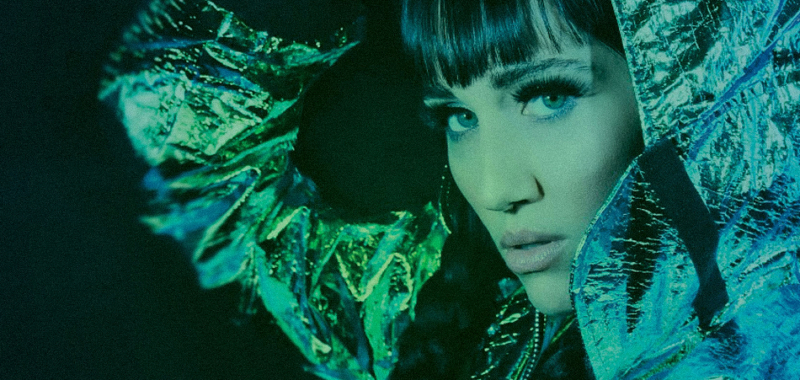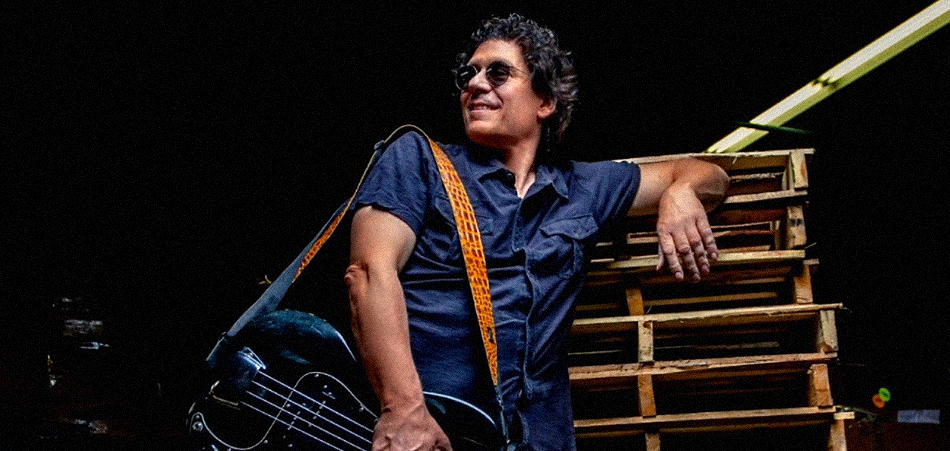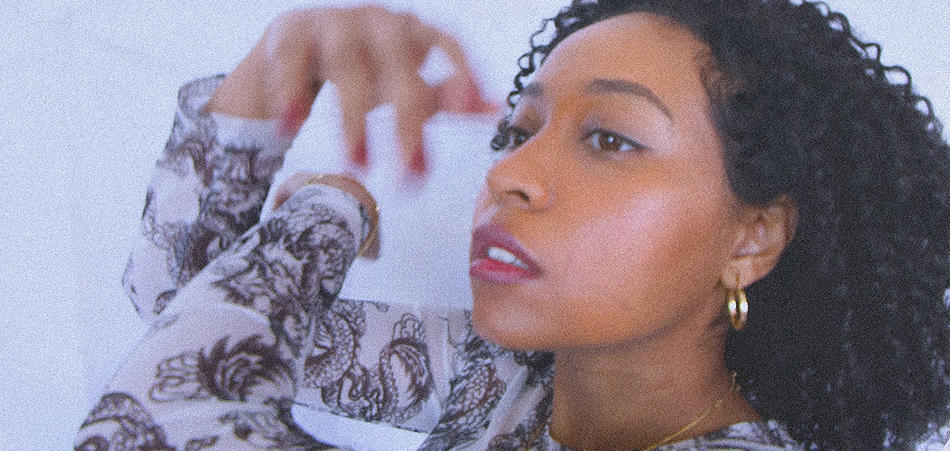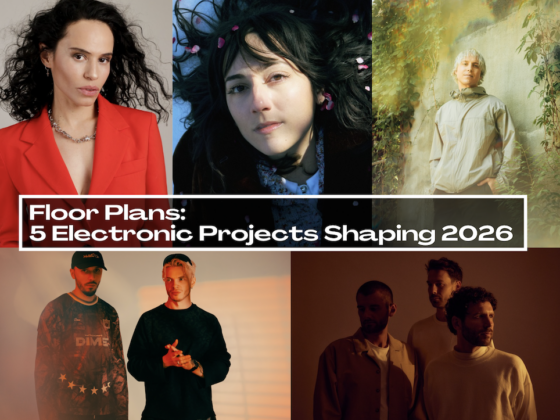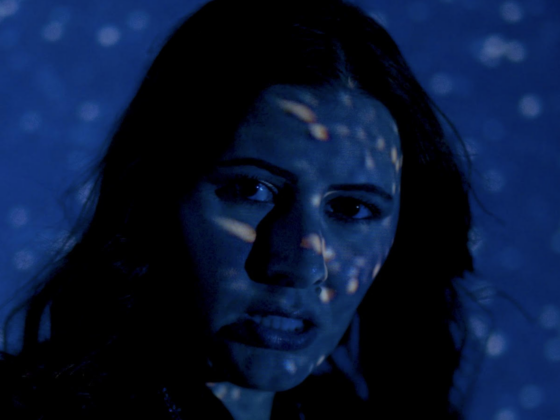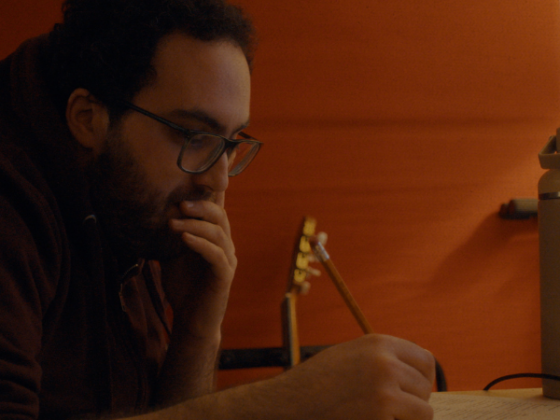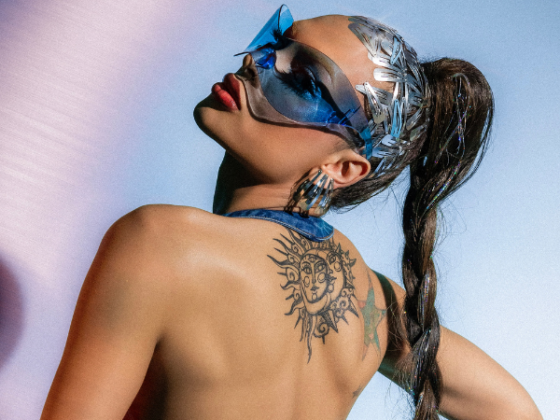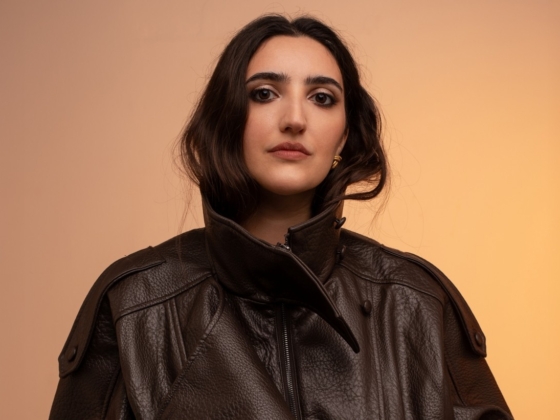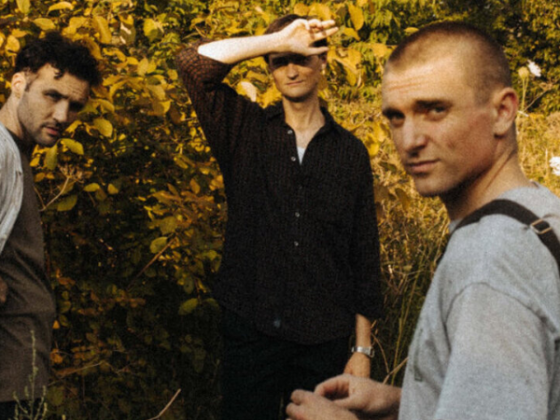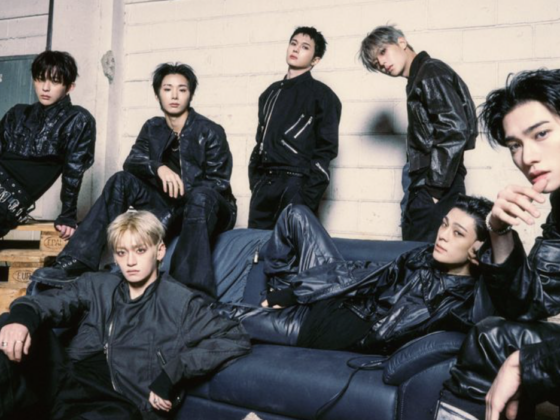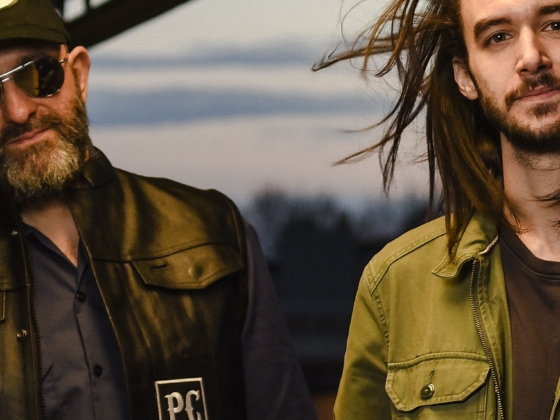The Green Room is a mental health podcast hosted by music executive Jenna Andrews. Launched in 2020, the digital series is released via Dash Radio in conjunction with The Jed Foundation, and She Is The Music (a nonprofit organization increasing the number of women working in music). On the latest episode of the podcast series, Jenna Andrews and UPSAHL have genuine conversations about dealing with heartbreak (especially during a pandemic) and moving on. Also, during the new episode, both women share experiences and ideas for making the music industry a safe space for creatives who deal with mental disorders.
In an interview with EARMILK, Jenna and UPSAHL tell us about The purpose of this episode, mental health, wellness practices, and Women in music among other interesting topics.
EARMILK: Jenna, I was hoping we could start with you. How do you feel about finally having UPSAHL on The Green Room?
Jenna Andrews: “I am so thrilled to finally have Upsahl on The Green Room. I have been writing with Taylor for the last year or so and we’ve gotten super close over quarantine. I think she is one of the most amazing people – so hard-working, driven, and overall one of the best new young artists out there. She’s such a good friend of mine and we actually have these conversations surrounding mental health on a regular basis so it was a no brainer and an absolute necessity to get her on an episode.”
E: I love the idea behind The Green Room and the conversations you’ve had with the guests on the show so far. Tell us about the day you eventually decided to record the first episode.
JA: “The day that I decided to pursue The Green Room was during the early stages of quarantine. I had been wanting to start the platform for a while and had a strong desire to show people how important mental health is and how songwriting acts as somewhat of a therapeutic outlet. It’s a way to express what you’re going through in a creative way and I find that using songwriting as an outlet to convey your struggles can lead to some of the best music. During quarantine, given that people all around the world were struggling together, I figured that starting this platform would be a great way to discuss common issues while highlighting the positive impact that music can have on people. It’s amazing to have a safe space where viewers can hear their favorite artist speak on issues that they themselves are going through. It brings a sense of reality and relatability to the table. I also believe that the platform can be healing for the guests that we have on the show, as they’re able to communicate directly with a therapist that can shed light on their struggles and help them make sense of what they’re going through. For the inaugural episode, I chose to kick things off with Lennon Stella. We’ve been working together for over 8 years and I consider her family which made for an amazing and positive first episode. From there I knew we had to keep going and make The Green Room a success.”
E: How do you select the guests you bring on the show to have these honest conversations with you?
JA: “At the start, I recruited guests that I knew personally. Since I was aware of what they were going through, I was able to center each episode around the appropriate topic or subject. Beyond that, for the guests that I didn’t know yet, it boiled down to being inspired by their stories and who they are as people. As an example, Rebecca Black put a post on Instagram discussing the continual effect that cyberbullying has had on her life since the release of “Friday” over 10 years ago. I found her story extremely inspiring and decided to reach out to her. She was so lovely and was an amazing guest who I now feel closer to after having the chance to sit down and discuss the struggles that she has faced. Wrabel was another guest that I didn't know prior to The Green Room. He described his battle with addiction and the steps that he took to recover from the years of alcohol and drug abuse. He would use those substances to help himself write music but is now completely sober and has found a way to create without the use of alcohol or drugs and I found that to be super powerful. At the end of the day, I’m looking for guests who are willing to dive deep into discussions surrounding their problems while providing an open mind and a safe platform for them to do so”
E: The color green has become a part of your personal brand. What does green mean to you?
JA: “At the beginning, I wanted the Green Room to resemble a backstage look into the lives of artists and how mental health works hand in hand with music. Artists express what they’re going through in their music and that music in turn heals those who listen to it when thinking of it from a mental health aspect. It just so happens that the color green resembles that of nature and health with close ties to emotions, empathy, kindness, and compassion which I absolutely love. We’ve also incorporated trees as the symbol that represents The Green Room. Trees are powerful symbols of growth, transformation and liberation, and have been said to be the homes of spirits. Tying that all together, the color green seemed to make so much sense with all that I’m trying to accomplish through this platform.”
E: UPSAHL, how did you feel after talking about your personal experience with heartbreak on this episode?
UPSAHL: “I honestly felt the same way that I feel after a writing session. My favorite way of dealing with my feelings is by talking about them. Usually, it's in song form, and when we're in sessions, we all just kind of let go of our ego and be raw and in touch with our emotions, and I felt like that's how we got to be during this episode.”
E: Like you said during the episode, it feels good to cry sometimes. What are your favorite songs to cry to?
JA: “My favorite song to cry to is always changing! However, one that constantly seems to get me is “Older Than I Am” by Lennon Stella. It’s a song that I absolutely love and feel a deep connection with, it gets me every time.”
U: “‘Jealous’ by Labrinth hits every time. Also a lot of Radiohead and Frank Ocean.”
E: Have you ever made a heartbreak playlist?
JA: “No! But I definitely should. Now that I think about it, I’m going to make one now (laughs).”
U: “Not on purpose. When I look back at the Spotify playlists I made during my lowest times, you can clearly tell that I was going through it at the time (laughs).”
E: What are your go-to wellness practices for good mental wellbeing?
JA: “Honestly, working on and growing The Green Room has been a great practice for my mental wellbeing. I love doing it. The platform is so therapeutic and it’s extremely helpful to discuss your issues with other people while learning about new struggles that you may have never experienced or known about prior. Knowing that you’re not alone is such a massive part of it. I also love to watch movies and TV shows as a way to decompress. I cannot wait for the weekend to come around so I can sit around and watch Netflix all day, it makes me feel so much better and so much more relaxed.”
U: “I think that it's important to remind yourself that no matter what you're feeling, it's valid. Everyone is so hard on themselves, especially when it comes to handling conflict, but at the end of the day, we're all fucking human and we all feel overwhelmed sometimes.”
E: I’m asking for the fans, when are we getting your debut album and what should we expect?
U: “This year! I'm in the studio working on it every day. It's going to be raw as fuck.”
E: The idea of having in-house therapists at record labels is a great one! Is this something you plan to pursue?
JA: “Absolutely! This is something that I hundred percent want to pursue. Top secret, but I’m already in the works of trying to figure out how to do it.”
E: Finally Jenna, you’ve said in the past that there aren’t enough female producers and executives in the music industry. Who are some rising female creatives in music that you would like to give a shout out to.
JA: “Oh man, there are so many people. Obviously, I’d like to start by giving a shoutout to Upsahl haha. I’d also like to highlight Benee, Lennon Stella, Sophia Messa, Tove Styrke, Anna Clendening, Little Mix, Jasmine Sokko, Ida Botten, and Gracie Ella. They are all such amazing female artists that kill it everyday. On the business front, I want to thank my manager Randi Razzano, Irene Richter who works with me on The Green Room along with Hannah Babitt who helps with and moderates the show. And last but not least, my publicist Nadia Ali! I’m so lucky to work with and have all of these amazing women on my team.”

